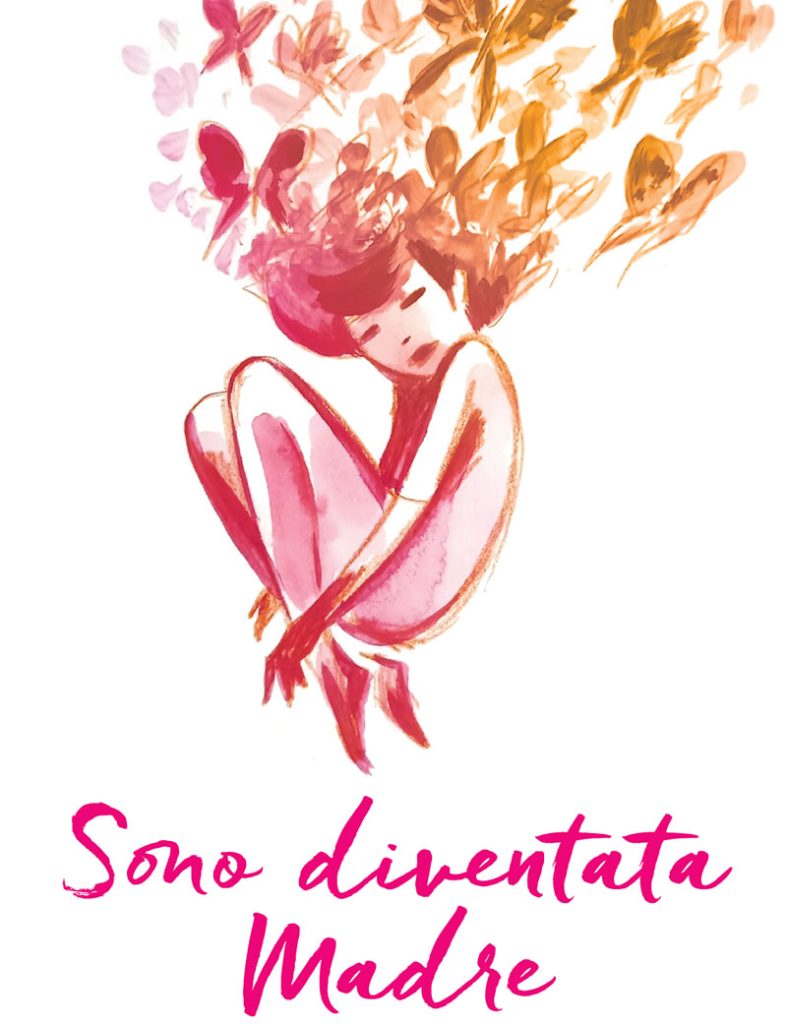AN AUTHENTIC STORY OF TRANSFORMATION

In I Became a Mother, Alessandra Cecconello offers us an intense and profound work, halfway between personal essay and existential reflection, in which motherhood is explored not as a role, but as a radical transformation of identity. It is a book that strikes for its honesty, clarity, and tenderness, capable of speaking not only to those who have experienced motherhood, but to anyone interested in the crucial transitions of human life: being born, becoming, changing.
The text moves on several levels: the autobiographical, in which the author recounts her own experience of motherhood; the symbolic, where she questions the deeper meaning of being a mother; and the relational, in which she enters into dialogue with previous generations – in particular with the figure of the mother – and with the child being born. The writing is intimate but never self-referential, poetic without being decorative, simple in form but dense in meaning.
The title, I Became a Mother, is already a declaration of intent. Not “I am a mother,” but “I became”: a verb that implies process, change, a journey. Motherhood is not described here as something that simply happens, but as a threshold one crosses – often with pain, always with awareness. Cecconello does not hide the fatigue, the confusion, the loss of points of reference. And it is precisely this that makes her narrative authentic and moving.
One of the strongest elements of the book is the way the author speaks about her own body. The maternal body is described in its becoming “other,” in its expansion, in its capacity to welcome – but also in its surrender, its struggle, its disorientation. There is no idealization, only respect: for what changes, for what breaks and recomposes. It is a living, exposed body that speaks, feels, teaches. This bodily narrative thus becomes both a political and poetic act: giving voice back to an experience too often trivialized or ignored.
The relationship with the mother is another key axis of the book. Through memories, imagined dialogues, painful and affectionate reflections, Alessandra Cecconello constructs a deep confrontation with the maternal figure who came before her. In becoming a mother, one becomes a daughter again. Old questions resurface, confirmations are sought, gestures, words, and silences are rediscovered. This spiral movement between generations is one of the most moving aspects of the book: motherhood as an opportunity to reconnect with one’s roots, but also to distinguish oneself, to be reborn as an autonomous self.
The language used is always measured, able to convey complexity with few strokes. Cecconello does not seek effect, but truth. And it is precisely in the sobriety of tone that her strength lies: every word seems necessary, every sentence has the right weight. Writing thus becomes a space for reworking, a tool for awareness, a gesture of care.
There are also reflections on isolation, the lack of social support, and the difficulty of finding real spaces in which to share the maternal experience without judgment or idealization. The book calmly but firmly denounces the solitude often experienced by mothers, the unrealistic expectations, and the rhetoric of “all natural” that weighs on those who face sleepless nights, identity shifts, guilt, and deep responsibilities. It is also an invitation to restore meaning and dignity to motherhood in our culture, to speak of it more, better, and with greater humanity.
The child – a constant and growing presence in the text – is never an object, but a subject of relationship. Through small gestures, glances, sensations, the author shows how that primordial bond is built day by day. Not as total fusion, but as mutual listening. In this view, motherhood is not blind sacrifice, but a fragile and powerful alliance.
At times, the book takes on the tone of a secular prayer, a quiet hymn to the life that is born and the life that changes. But it is also a diary of resistance, resilience, and freedom. Alessandra Cecconello offers no easy answers, but asks real questions. And that is the strength of her essay: the ability to hold together light and shadow, joy and struggle, wonder and doubt.
In conclusion, I Became a Mother is a necessary book. Not only for those who are mothers, but for anyone who wants to understand, with an empathetic and non-judgmental gaze, what it means to cross one of the most profound transformations of human existence. It is a text that speaks softly, but stays with you. Like a seed that begins to grow. Like a voice that finally finds home.
The full book in the attached PDF (in Italian) ↓
